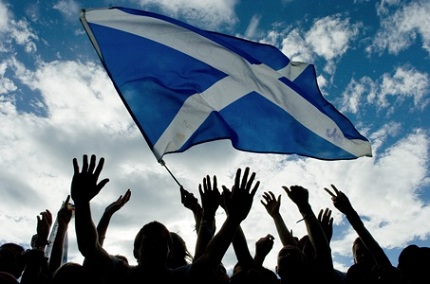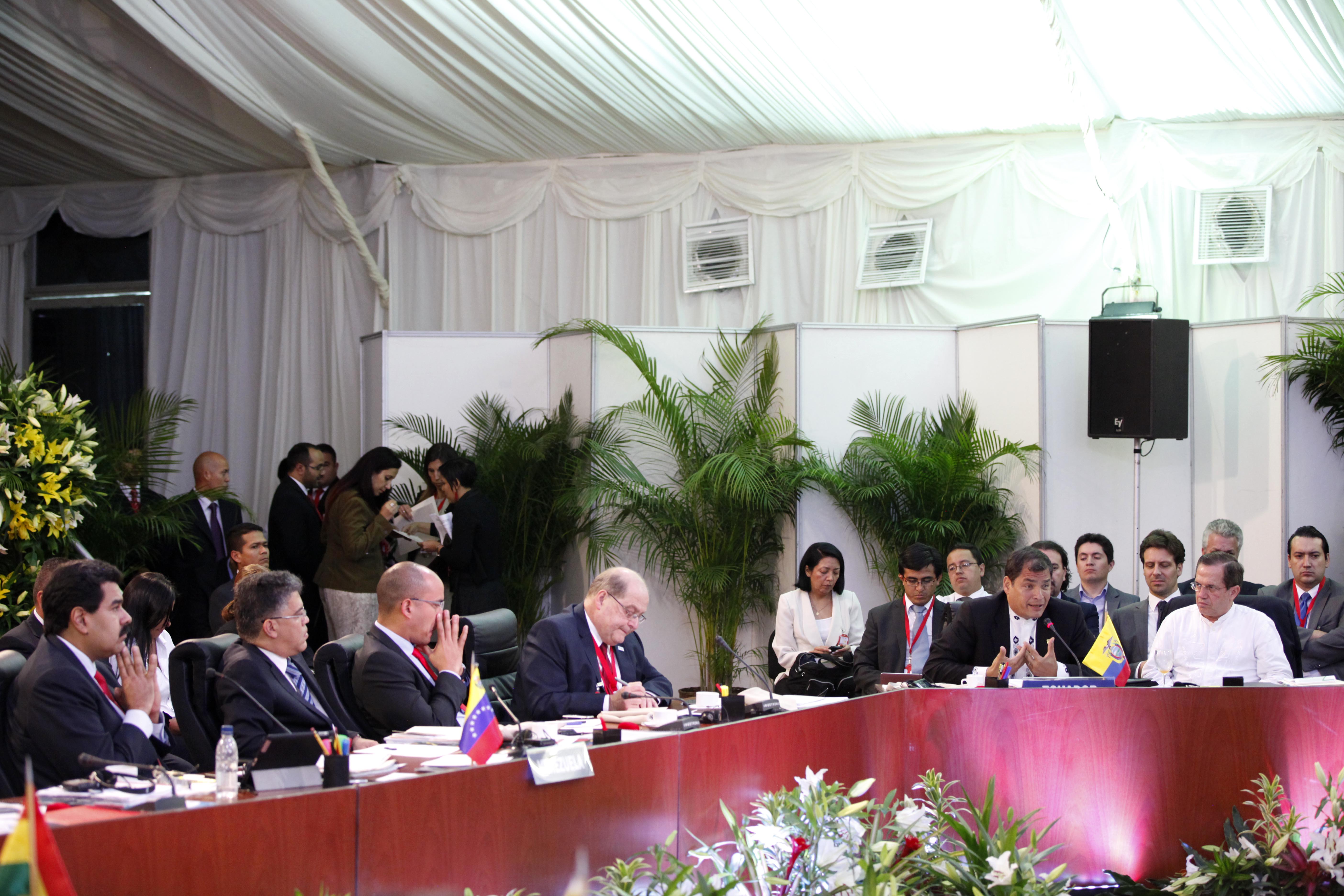Scotland is preparing to conduct a highly anticipated referendum on its proposed independence from the United Kingdom. The debate over the country’s future has been contentious and wide-ranging, but mainly focused on domestic economic concerns and control over natural resources. It has, however, become increasingly common to hear critics of the Scottish government’s independence plan argue that secession from the UK would jeopardize Scotland’s membership in international organizations including the EU and NATO. The governing Scottish National Party, led by Alex Salmond, have claimed that membership could easily be transferred to a newly independent Scotland, but observers and officials have criticized this assessment for being misleadingly optimistic.
[captionpix align=”left” theme=”elegant” width=”300″ imgsrc=”http://natoassociation.ca/wp-content/uploads/2013/06/dt-2b.jpg”]
Opponents of Scottish independence have used the debate around this issue to dissuade Scottish voters from supporting independence in next year’s referendum. While a transition to independence may be more complicated than the SNP suggests, the member states of international institutions like the EU and NATO must be careful not to allow themselves to be seen as stifling the democratically expressed will of their constituent populations. Similarly, commentators interested in advancing the cause of peace, security, and stability in Europe should criticize any occasion on which NATO, the EU, or other institutions function to suppress and interfere with, rather than facilitate, peaceful and democratic political processes. Despite the fact that these institutions will not directly interfere with the vote, perception is important, and it is up to member states to ensure that their institutions do not appear to be dissuading a democratically expressed desire for independence.
If Scotland becomes an independent state, its membership in certain important organizations will be drawn into question. There is no consensus opinion on the matter, but the most likely scenario would see the remaining United Kingdom retain its status in international organizations, with Scotland being forced to apply as a separate state. There is little doubt that Scotland would want to attain membership in the EU and NATO, but some have suggested the organizations themselves may not be entirely receptive. Any concerns that the UK would be embittered by the secession of its northern territory, and consequently impede Scottish efforts to gain organizations membership, appear to be unfounded. The referendum has been negotiated between and coordinated by London and Edinburgh while remaining an entirely peaceful process. The UK would have little reason to establish anything but an entirely amicable relationship with an independent Scotland.
Aside from the general bureaucratic and institutional hurdles, the most significant obstacle to Scottish membership might be Spain. The Spanish government has struggled with a historically restive Basque region, and is currently confronting an independence movement in Catalonia. If this remains a pressing issue, the Spanish government may not want to encourage separatist sentiments at home by helping a new state establish itself. Greece’s effective prevention of Macedonian ascension provides ample evidence that any member state would be entirely capable of impeding Scottish membership. Furthermore, the SNP’s stated opposition to nuclear weapons may cause concern amongst NATO partners who would like to see nuclear components remain in Scotland.
With this in mind, it is clear that the commentary urging Scottish voters to think twice about the international implications of independence is not without merit. There is cause for concern. However, this is not where the analysis should end. If the mission of the EU, NATO, and other similar organizations is the advancement of peace, security, and democracy then we must consider what it means when membership is threatened by an act of peaceful democratic expression. NATO and the EU have little experience with secession from their member states, so the case of Scotland is particularly important and potentially precedent-setting. It is quite likely that these organizations will again be confronted with a similar situation. Spain and Canada, for example, are both member states of NATO in which secessionist movements, though not likely to attain immediate success, could remain a potent political force in the long term. This matter is unlikely to disappear once Scotland votes on its status, and as a result, international organizations in the Atlantic region must consider how to cope with instances of secession from their member states.
Given the lack of significant precedents, it seems entirely plausible that the EU and NATO could each be particularly accommodative towards new states that have seceded from member states so long as those secessionsn were peaceful, democratic, and agreed to by the original state’s government. This would retain selectivity in terms of membership, it would not encourage violent separatism, and it would further establish democratic avenues as the acceptable and effective path through which political change can be pursued. Just as importantly, it would not interfere with the ability of member states’ populations to effectively express themselves through democratic means and would leave little daylight between the stated goals of these organizations and their actual role.
It is worth noting that NATO’s first major post-Cold War operations aided European secessionist movements in the Balkans. Clearly, Scotland is not Bosnia or Kosovo, and the pursuit of independence has been conducted peacefully, so there are more differences than similarities between the cases. Nevertheless, the peaceful nature of Scotland’s independence movement is precisely why it would be so regrettable if the threat of losing EU or NATO membership influenced the outcome of the referendum.
The upcoming Scottish referendum has provided these organizations’ member states with an opportunity to reaffirm their commitment to democracy, a reputation that they may tarnish if they are seen to be standing in the way of political change.




